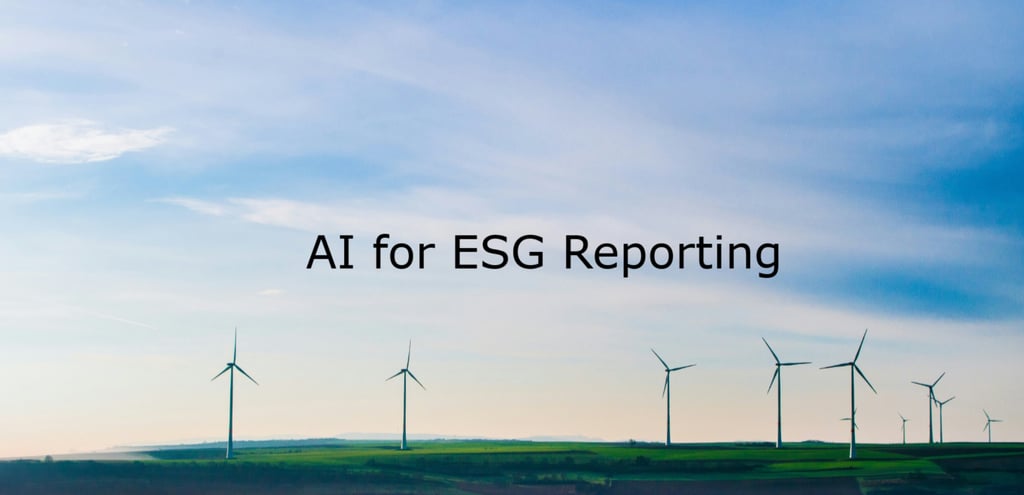Using AI for ESG Reporting
AI has been a controversial subject in the Environmental, Social and Governance community due to its heavy ESG footprint. However, this article discusses the possible benefits of AI in ESG reporting.
Shahab Najmi
5/2/20252 min read


Artificial Intelligence (AI) is a controversial subject among the Environmental, Social, and Governance (ESG) community due to the significant footprint of the AI itself. ChatGPT estimates that asking it a simple question has an estimated carbon footprint of ~0.01 to 6 grams of CO₂ equivalent (gCO₂e) (same as sending a short email), and 0.5 to 5 ml of water are used per prompt for inference (teaspoon of water).
On the other hand, AI can transform how companies approach Environmental, Social, and Governance (ESG) reporting. With sustainability becoming a pressing concern for investors and stakeholders, organizations must leverage technology to streamline their ESG efforts. In this article, we will explore how AI is reshaping ESG reporting, the tools available in the market today, and the benefits that come with these advancements.
AI enhances ESG reporting by significantly improving data collection and analysis. Traditionally, reporting on ESG metrics required intensive manual work, leading to inefficiencies and a greater risk of human error. AI-powered platforms like Clarity AI and Datamaran intelligently analyze complex datasets, aligning outputs with global standards like GRI, SASB, and CSRD. These systems reduce the burden of traditional reporting processes and ensure greater accuracy and transparency in disclosures. As companies increasingly recognize these benefits, we are witnessing a shift towards tech-driven sustainability initiatives—a trend set to redefine ESG reporting benchmarks.
Among the various AI tools available, Clarity AI and Datamaran stand out as essential resources for organizations looking to enhance their ESG reporting frameworks. Clarity AI offers advanced analytics that provide insights into a company’s environmental impact and social responsibility efforts. Similarly, Datamaran leverages AI to facilitate continuous monitoring of ESG risks and trends, allowing businesses to pinpoint potential areas of improvement and compliance. Unlike traditional reporting methods, which often rely on historical data, these tools utilize real-time data processing, enabling companies to respond swiftly to changing regulations and stakeholder expectations.
The advantages of integrating AI into ESG reporting extend far beyond efficiency. By utilizing AI, organizations can identify precise methods for reducing their financial and environmental impacts, such as optimizing resource consumption. This proactive approach fosters a culture of accountability and can enhance a company's reputation in the marketplace. As interest in sustainability grows, companies equipped with innovative AI tools can effectively communicate their commitment to ESG principles and gain a competitive edge. Now is the time for businesses to embrace AI in ESG reporting, and I encourage readers to share their thoughts—what tools have you used? How has AI transformed your reporting practices?
—
Shahab Najmi
📩 Contact me: shahab@infinityxconsulting.com

